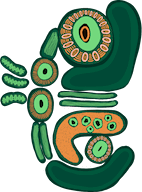
Dental and mental health- are you suffering from bruxism?
Bruxism is a condition that involves grinding, gnashing, or clenching the teeth and is often caused by genetics, stress, or anxiety. Caffeine and medications like antidepressants can increase the risk1. Bruxism can also be caused by involuntary, strong contractions of the jaw muscles and can happen unconsciously when we’re awake but also when we’re sleeping.
I’ve never thought about the position of my teeth!
Our teeth are designed to be in contact with each other when we chew, but apart when we’re not eating. Even if our mouth and lips are shut, our upper and lower teeth shouldn’t really be in contact. Clenching the jaw and teeth places pressure on jaw muscles and their teeth, which can cause problems if sustained for long periods of time.
How would I know if I grind my teeth?
You may not know for certain if you’re tooth grinding until your dentist examines your teeth. However, you may suspect you are if you’re currently experiencing:
- Painful jaw muscles, particularly in the morning.
- Cracked, chipped or painful teeth.
- Neck or ear pain, headaches and sensitivity to hot and cold foods or drinks.
- Your partner may also hear your teeth grinding when you’re sleeping.
Your dentist will check for signs of bruxism at your dental visits. Typical symptoms they’ll be looking for are tooth damage, worn enamel or flattened, fractured or loose teeth. Your dentist will also ask you for a history of any discomfort or changes in your mouth or jaw.
What is the treatment for tooth grinding?
Addressing the cause of grinding, not just the symptoms supports effective management.
Not everyone who grinds their teeth will need treatment. Children, for example, will often grow out of it. Similarly, for many people, tooth grinding is transient and only periodically appears during stressful times. If you’re stressed, mindfulness and relaxation strategies, as well as developing positive sleep hygiene habits can make a difference.
However, if you do need treatment, there are a few different ways to manage bruxism effectively.
To manage the physical symptoms of bruxism, a custom-made mouthguard, also called an occlusal splint is designed to prevent tooth damage that occurs during sleep. It also decreases the symptoms of muscle and jaw discomfort caused by grinding. An occlusal splint does not stop the wearer from tooth grinding; however, it helps to alleviate some of the signs and symptoms.
Your dentist will also make recommendations to repair any damaged teeth. Fillings and crowns may be necessary to repair damaged or worn teeth. Left untreated, severe bruxism can damage teeth so much that they may need to be removed.
Another treatment option is to have Botox injections into the jaw and chewing muscles. Botox works for bruxism by blocking the nerve transmission between the brain and the injected muscles, causing them to relax2.
Book an appointment with your dentist to check if you have bruxism.
Teeth grinding – Australian Dental Association
The Evaluation of the Clinical Effects of Botulinum Toxin on Nocturnal Bruxism – PMC (nih.gov)
